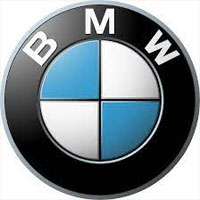The Volkswagen ID.3, the company's first electric vehicle designed specifically for the road, marked a dramatic shift in the way the business designs and builds automobiles. In what way? Volkswagen is producing it on a dedicated electric platform in a factory that is carbon neutral, and it compares its significance to that of the first Beetle and Golf.
Volkswagen also changed the lineup for the ID.3 engine. All cars now share a single 204 horsepower electric motor, and there are only two battery packs and two trim levels available. The Pro S model has a 77kWh battery and a maximum range of 356 miles, while the entry-level Pro model has a 58kWh battery and a 270-mile range.
 Volkswagen ID.3 Driving Range
Volkswagen ID.3 Driving Range
Customers purchasing a Volkswagen ID.3 have a choice between two battery sizes: 58kWh and 77kWh. The former battery had a maximum range of 270 miles in WLTP tests, while the latter has a maximum range of 356 miles. Just keep in mind that the figures are a little optimistic and change depending on the temperature, so you won't always get them from the cars.
We put the 77kWh ID.3 through a rigorous range test, and the results were quite impressive. We average 4.0 miles per kWh on a decidedly unfriendly route for electric vehicles (EVs) in cold weather with lots of motorways and fast-moving A-roads. We also travelled 293 miles on our ID.3 before the trip computer indicated there were no more miles to be gained from the battery.
The ID.3 Driving Range of the Volkswagen ID.3 is shown below in both mi/kWh (Miles per kWh) and km/kWh (Kilometers per kWh). Both of these figures show you how far that particular Volkswagen ID.3 variant can travel for every gallon (4.55 litres) and every litre (1000ml) of fuel. The higher the mi/kWh or km/kWh value, the more economical the car is and the cheaper it will be to run. As well as providing the combined figures, we also give you the ID.3 Driving Range you can expect from a Volkswagen ID.3 in urban / city driving conditions as well as what can be expected on the open highway / motorway.
| Car Make, Model & Year | Imperial (mi/kWh) | Metric (km/kWh) |
|---|---|---|
| Volkswagen ID.3 ID.3 Pure Performance 45 kWh - 18'' tyres Electric Automatic (2024) |
4.0 mi/kWh City: 4.3 mi/kWh Highway: 3.7 mi/kWh |
6.4 km/kWh City: 6.9 km/kWh Highway: 5.9 km/kWh |
| Volkswagen ID.3 ID.3 Pro Performance 58 kWh - 19'' tyres Electric Automatic (2023) |
3.8 mi/kWh City: 4.1 mi/kWh Highway: 3.5 mi/kWh |
6.1 km/kWh City: 6.6 km/kWh Highway: 5.6 km/kWh |
| Volkswagen ID.3 ID.3 Pro S 77 kWh - 20'' tyres Electric Automatic (2022) |
3.7 mi/kWh City: 4.0 mi/kWh Highway: 3.4 mi/kWh |
5.9 km/kWh City: 6.4 km/kWh Highway: 5.5 km/kWh |
| Volkswagen ID.3 ID.3 Tour 77 kWh - 20'' tyres Electric Automatic (2021) |
3.6 mi/kWh City: 3.9 mi/kWh Highway: 3.3 mi/kWh |
5.8 km/kWh City: 6.3 km/kWh Highway: 5.3 km/kWh |
| Volkswagen ID.3 ID.3 Life 58 kWh - 18'' tyres Electric Automatic (2020) |
3.9 mi/kWh City: 4.2 mi/kWh Highway: 3.6 mi/kWh |
6.2 km/kWh City: 6.8 km/kWh Highway: 5.8 km/kWh |
| Volkswagen ID.3 ID.3 First Edition 58 kWh - 19'' tyres Electric Automatic (2019) |
3.8 mi/kWh City: 4.1 mi/kWh Highway: 3.5 mi/kWh |
6.1 km/kWh City: 6.6 km/kWh Highway: 5.6 km/kWh |

Includes the A series, E-Tron electric and Q series

Includes 1-8 series, I, X and Z series

All Ford Cars, Vans and Pickups